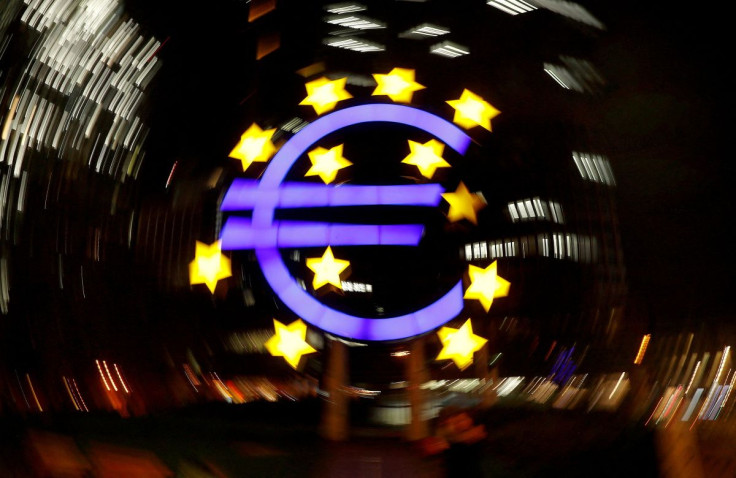Euro Zone Yields Extend Fall After BoE Flags Recession Risk

Euro zone government bond yields extended their decline on Thursday after the Bank of England slashed its forecast for the British economy in 2023.
The Bank of England raised interest rates to their highest since 2009 at 1% on Thursday to counter inflation now heading above 10%, even as it warned that Britain risks falling into recession.
"It's 100% Bank of England," said Antoine Bouvet senior rates strategist at ING.
"They downgraded their forecast for the UK economy, and it seems that the tightening cycle is about to end soon. That's a dovish signal also for the euro zone," he added.
By 1201 GMT on Thursday, Germany's 10-year yield, the benchmark for the bloc, was down 2.5 basis points (bps) to 0.96% after briefly rising back above 1% in earlier trade. Two-year yields, sensitive to interest rate expectations, were down 7 bps to 0.21%.
Money markets slightly lowered their bets on ECB hikes, now pricing in around 82 bps of ECB rate hikes by year-end, compared to around 88 before the Bank of England decision. They also moved to price in less than 20 bps of ECB hikes by July.
In Italy, a key beneficiary of ECB stimulus, the 10-year yield was down 9.5 bps to 2.87%, tightening the closely watched risk premium over German bonds to 191 bps, after hitting the highest since May 2020 at over 198 bps on Wednesday.
With the focus on the Bank of England's economic outlook, there was little reaction to remarks by ECB chief economist Philip Lane, who said the bank is preparing for a sequence of rate hikes that will put its benchmark in positive territory.
The path it takes is more important than the exact date of the first move, Lane added.
The Bank of England meeting followed the U.S. Federal Reserve, which on Wednesday raised its benchmark interest rate by half a percentage point, the biggest rise in 22 years, but chairman Jerome Powell explicitly ruled out raising rates by 75 basis points (bps) in a coming meeting, triggering a sharp rally in U.S. Treasuries and stocks.
In earlier trade, euro zone bond yields had followed overnight moves in U.S. Treasuries, but yields had fallen less than across the Atlantic, where the two-year Treasury yield fell 13 bps on Wednesday.
"I think euro rates still have a hawkish ECB to consider, there's not a change on that front," said Peter McCallum, rates strategist at Mizuho in London.
Earlier on Thursday, ECB board member Fabio Panetta said the bank should not raise interest rates in July, a move an increasing number of policymakers are advocating, and should wait to see euro zone second quarter GDP data.
In the primary market, Spain raised 5.61 billion euros from five to 50-year bonds and France raised 10.99 billion euros from 10 to 30-year bonds.
© Copyright Thomson Reuters 2024. All rights reserved.



















